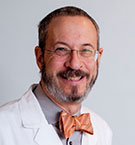Essential Tremor Treatment
Contact Information
Massachusetts General Hospital
55 Fruit Street
Boston,
MA
02114
Phone: 617-726-1799
Email: focusedultrasound@mgb.org
Explore This Treatment
Overview
MRI-guided focused ultrasound (MRgFUS) is an FDA-approved therapy for treating essential tremors. Using beams of acoustic energy, the areas of the brain that disrupt movement are targeted without causing harm to surrounding tissues. The procedure allows your doctor to visualize and treat the tissue in real time, ensuring greater accuracy. Patients often experience immediate improvement in their symptoms shortly following the procedure.
Benefits
Compared to traditional surgical approaches, focused ultrasound offers a quicker recovery time. Patients can often return to their daily activities within a day of the procedure. It also greatly reduces the risk of infection and damage to surrounding, non-targeted areas of the brain.
Procedures and Techniques
During MRgFUS you will undergo the treatment while lying on a table inside an MRI scanner. Before the procedure, you will have your head shaved, and a frame will be placed on your head, which will help guide the treatment.
The treatment starts once you're in the correct position. Your doctor will use MRI to plan the treatment. Once the brain region is determined, the therapy will be applied. The MRI bed will move in and out of the scanner.
At the end of the procedure, a final MRI scan will be conducted to evaluate the treatment. The head frame will be removed, and you will be taken to a recovery room. Your physician will inform you when it is safe to go home and when you will need to schedule any follow-up visits. Within a few days, you can resume your normal activities.
Parkinson's Disease
Tremors are the main symptom in about 26% of Parkinson's patients and can significantly affect their daily activities. Many patients experience immediate improvement in their tremors with minimal complications. For individuals with Parkinson's disease who have been resistant to other treatments, exploring MRgFUS as a potential therapy option may be beneficial.
Our Team

Lisa Townsend, NP
A Top Hospital in America
Mass General is recognized as a top hospital on the U.S. News Best Hospitals Honor Roll for 2025-2026.
Telehealth at Mass General
Virtual visits allow you to conveniently meet with your provider from home—either online (over your computer or device) or by phone.


